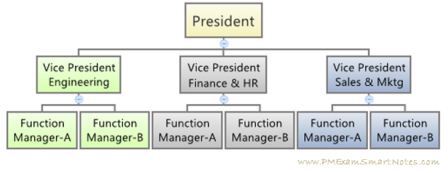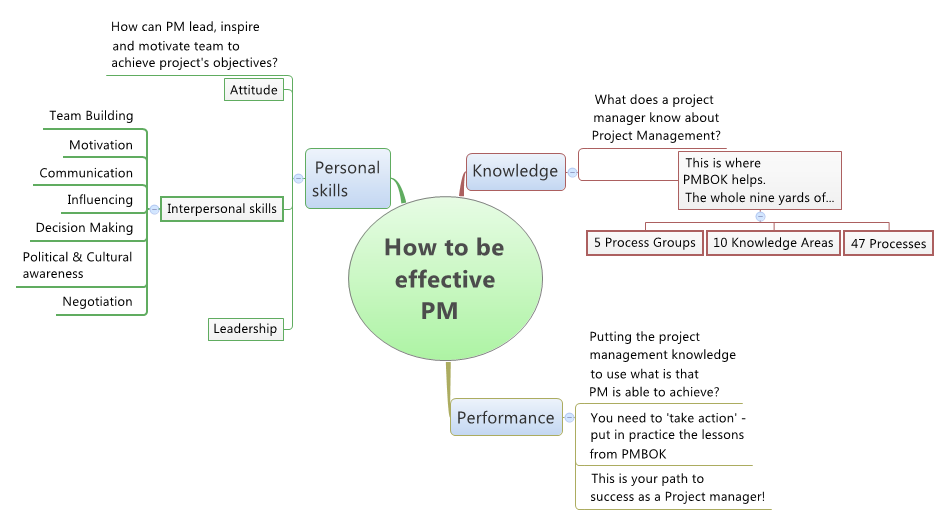 How do you identify a Project Manager?
How do you identify a Project Manager?
There are other types of managers too in an organization!
It is essential to be able to recognize the duties of a Project Manager as compared to other types of managers that work in an organization.
That is to speak, to know the differences between Functional Manager (FM), Operations Manager (OM) and Project Manager (PM). Knowing this will help you know if/when your duties are overlapping that of FM or OM.
Don’t miss the downloadable infographics at the end of this post.
What does a Functional Manager do?
A Functional Manager is responsible for a specific function of an organization, such as Finance, Customer Success, Sales, or Human Resources.
If a project manager is working in a matrix organization, she needs to forge and maintain a good relationship with functional managers in order to ensure project’s success. This is because in such organizations project team members would be reporting to functional managers. In some cases, project manager may even be reporting to a functional manager. We will learn more about organizational types in an upcoming lesson.

Figure 1: Organizational structure of a Functional Organization
What does a Operations manager do??
Operations is an ‘ongoing’ activity of an organization, and an operations manager manages them. For instance, IT team of a company manages IT Operations. A catering service serving food to patients in a hospital – is also an example of Operations.
Projects can intersect with operations at different milestone points. For instance, when a project phase closes and the enhanced product is released, Maintenance team is trained on usage and troubleshooting of the new features, so it can do support customers. Project managers and Operations managers collaborate to plan such activities.
What does a Project manager do?
In brief, a project manager is responsible for achieving project objectives.
But the devil is in the details, right? Project manager should be able to understand, plan for and manage several aspects of running a project successfully, such as project and product requirements, schedule, costs, quality of deliverables, human resources, communication needs, risks, procurement of materials and services and managing stakeholders’ needs. These aspects are termed by PMBOK® as Knowledge Areas.
Also read: My recommended PMP (and CAPM) exam study resources (download free ones)
What are the differences between these 3 types of managers?
Project manager’s extent of power over project depends on the organization type. A matrixed organization gives lesser power and authority to its project manager if it is of weak-matrix type. To the extent that even to get human resources or budget, project manager needs to have approval from functional managers. It is a well-known fact that unless you are managing your team directly there is a limit to the amount of influence you may have over the team.
The mind-map below shows responsibilities of three types of managers, and how a project manager interacts with functional manager and operations manager. Click on the image to open in new window.

Figure 2: Three types of managers in an organization
What does it take to be a good Project Manager?
Being a good (read ‘effective’) project manager is a hard task. But the good news is that PMBOK® guides us on all that is required to become one.
Three fundamental characteristics of an effective project manager are –
- Knowledge: What do you know about your job…
- Performance: How do you put that to use…
- Personal skills: How do you deal with people involved while doing it…
Now,
- The knowledge is available (formed around the processes) in PMBOK® book.
- You need to put that knowledge into practice at your organization and derive a good performance.
- Effectiveness as a project manager needs personal skills to deal with team, customer, executive management and other stakeholders involved in the project. An effective project manager also needs to have great attitude, analytical skills, ethical mindset, and interpersonal skills such as –
- Leadership
- Team building
- Motivation
- Communication
- Active listening
- Influencing
- Decision making
- Negotiation
You will learn more about personal skills in Human Resources Management section of this series of PMP / CPAM exam notes.
Figure 3: Attributes of an effective project manager
What is project management?
Quite simply, project management is the application of knowledge, performance and personal skills of a project manager to achieve project objectives. However, this is easier said than done.
Managing a project involves dealing with constraints – mainly scope, time, cost, quality, resources and risk – we saw in the earlier lesson on project constraints. Impact on one of the constraints likely will affect other(s).
Project management involves identifying true stakeholders, documenting right requirements, coming up with optimized schedule, managing resources effectively, keeping costs in check, making project deliverables with accepted level of quality, managing good relationship with stakeholders, keeping communication channels up and running, ensuring procurement activities are running smooth, keeping top management abreast of project progress, churning out right amount of project documentation, managing positive and negative risks well, managing changes to project scope through change control process, updating various baselines, improving processes, and contributing to organizational process assets.
What does a project team consist of?
- Project manager – responsible for managing all project activities and project team to achieve project objectives
- Project management team – helps project manager on activities such as sending communication, identifying right templates, creating schedule and creating project documentation. Sometimes this could be just the project manager. In some cases this could be the entire project team (project manager + project staff)
- Project staff – people who do the actual project work
Project Manager Infographics
Here are couple of infographics that explain the qualities that effective project managers around the world are exhibiting. Click on the images and download to disk.
10 characteristics of a good project manager – courtesy: taskworld.com

So the question is how should a project manager should evolve?
One obvious answer, with the higher adoption of Agile methodology around the world is that a project manager’s role is slowly turning into that of a leader. That too what many call as ‘Servant leader’ – that is a leader that serves his team. Empowers them. Helps them achieve their highest potential.
Here’s an infographic, courtesy Jacob Morgan of thefutureorganization.com, that talks about 10 qualities of a future project manager.

And in this video Jacob explains the 5 trends that are impacting how you and me would be working in future. Some of these are already mainstream.. –
Summary
In this article we saw different types of managers in an organization and the characteristics of a good project manager. In this section we are looking at several concepts across many lessons. Please do not skip them, no matter how much you are tempted. Understand them thoroughly. As you move on to further sections these concepts start coming into play and it all starts to make sense.
Let us see what are the two most important inputs to processes during Planning process, at least?





